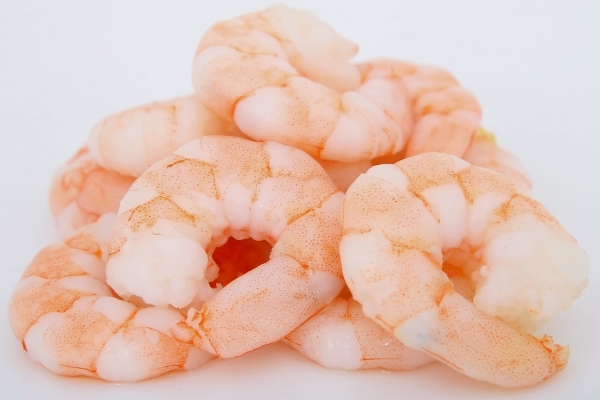
A bipartisan group of US senators have called for shrimp to be included in new legislation aimed at improving the traceability and transparency of seafood imports and preventing fraud.
In a letter to the Senate Appropriations Committee, 11 senators from across the political divide supported language in the Commerce, Justice, Science and Related Agencies appropriations bill that sought to include shrimp in the National Oceanic and Atmospheric Administration’s Seafood Import Monitoring Programme (SIMP).
“Specifically, we support the language in Section 513, which requires SIMP to include shrimp within 30 days of enactment of the bill,” the senators wrote, meaning the import shrimp industry would have 30 days to prepare for the requirements under SIMP.
The Seafood Import Monitoring Programme – also known as the Seafood Traceability Rule – was introduced at the end of the Barack Obama administration and aims to reduce the amount of illegally caught and mislabelled seafood entering the US.
The legislation followed evidence published by international advocacy group Oceana that showed about one-third of seafood sold in restaurants and in stores was different – generally a less expensive or inferior species – to the species advertised. Meanwhile, an earlier study in 2014 estimated that between 20 per cent and 32 per cent of wild-caught seafood entering the US came from illegal, unreported and unregulated fishing.
Under the SIMP legislation, which came into force on 1 January 2018 for 11 of 13 identified priority species, seafood importers must record the species, origin and when and how the seafood was caught or farmed, alongside other data, and track it from the fishing vessel or farm all the way to the US border.
Shrimp imports, however, were exempted from this compliance date until similar record-keeping requirements were in place for the domestic industry based on concerns about a World Trade Organization (WTO) challenge.
But the domestic shrimp industry has pushed for the seafood to be included.
“We are concerned about the indefinite stay on shrimp imports compliance with SIMP implemented by the National Marine Fisheries Service,” the senators wrote. “More than 65 per cent of seafood imports covered by SIMP are shrimp. With full implementation, the American people would have better, timelier access to health and safety information for this widely consumed product.”
According to the senators, the primary sources of imported shrimp to the US are from India, Indonesia, Thailand and Vietnam. “These countries all export heavily-subsidised, farm-raised shrimp, in contrast to the vast majority of American shrimp, which is wild-caught. We believe that SIMP is a key step to restoring a level playing field for the US shrimp industry.”
The senators also expressed “serious concerns” about the use of antibiotics in some shrimp imports, particularly farm-raised shrimp, and noted that including shrimp in SIMP would reduce any risk to US consumers. They also noted “suspect labour practices” involved with imported shrimp.
Mississippi Commercial Fisheries United welcomed the senators’ letter of support, claiming that including shrimp in SIMP would help build consumer confidence in the safety of imported shrimp and would “help to close the door on fraudulent schemes including the adulteration of domestic, wild-caught shrimp that is often mixed with cheap imported shrimp and passed to consumers as US product”.
Ryan Bradley, director of Mississippi Commercial Fisheries United, added: “The domestic, wild-caught shrimp industry has been in a state of decline for decades due to the flood of cheap, imported shrimp from countries such as India, Indonesia, Thailand and Vietnam. This bill is a beacon of hope for our coastal communities that greatly rely on domestic shrimp production – the largest commercial fishing industry in the south eastern US.”
The senators’ letter follows another letter signed by 11 US House of Representatives from states bordering the Gulf of Mexico, where much of the US shrimp industry is centred. That letter, sent to Commerce Secretary Wilbur Ross, called for the removal of the shrimp exemption from SIMP.
However, Gavin Gibbons, vice president of communications for the National Fisheries Institute, has argued that the moves to include imported shrimp under SIMP are “borderline disingenuous” and are based more on trade concerns than preventing fraud. “The 15 different species originally covered had more than a year to prepare for implementation. To give shrimp, a product initially exempted by NOAA itself, only 30 days to comply suggests something else is afoot. An effort to erect a trade barrier under cover of a fictional food safety tie reeks of insincere legislating,” he said.
©
SecuringIndustry.com





